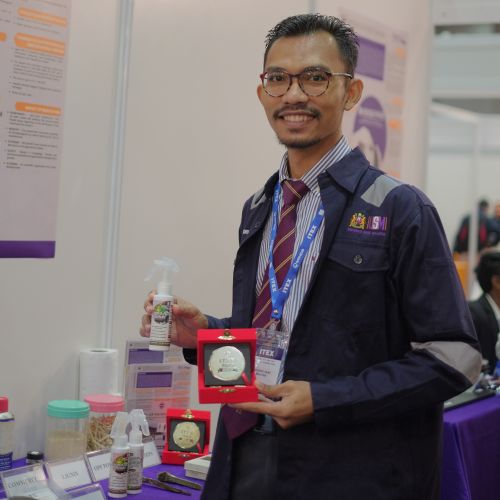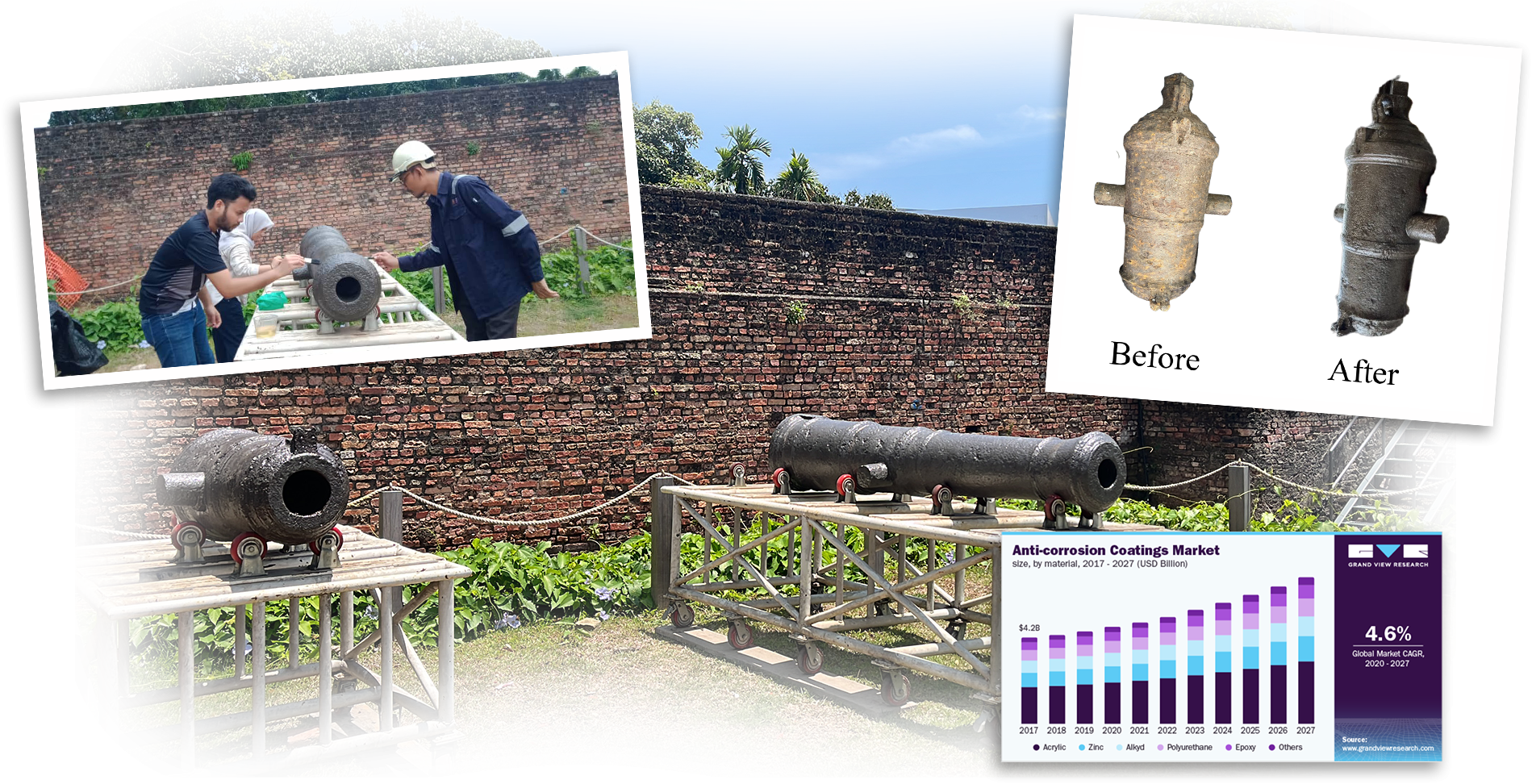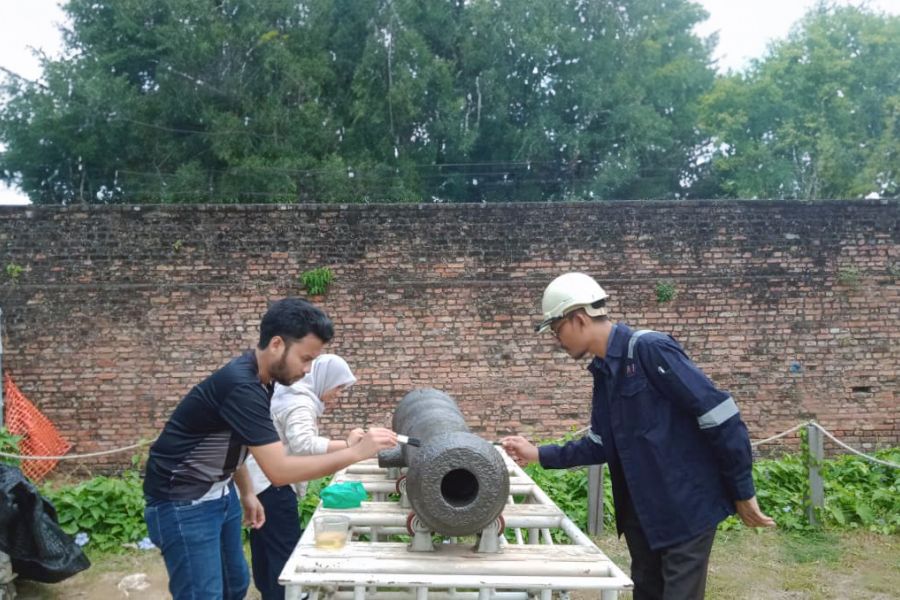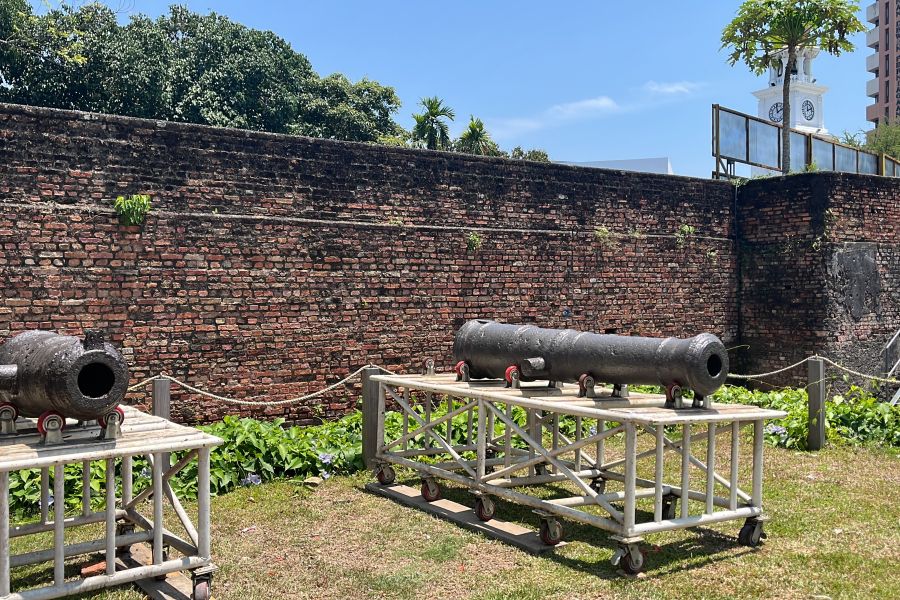LIGNO-XP PRIMER : An Excellent Green Preservative for Archeological Metals

Assoc. Prof. Dr. Mohd Hazwan Hussin
Mohamad Nasir Mohamad Ibrahim
Pandian Bothi Raja
Tuan Sherwyn Hamidon
Liyana Syafawati Osman
Nor Najhan Idris
Siti Shafiqah Azahar
Nur Hazwani Dahon
Nur Fatin Silmi Mohd Azani
Malaysia produces massive amounts of oil palm fronds (OPF), which is a non-woody agricultural by-product generated from oil palm milling. Researchers are now very much involved in the conversion of oil palm biomass waste into valuable items as an option to convert from a petroleum-based economy to a bio-based economy. Among the significant components in OPF, lignin has attracted much attention compared to other components due to its distinctive features and desirable applications. Lignin is a non-toxic complex and a highly promising raw material used in industrial applications as it has a variety of functional groups and phenylpropanoid structure. Archeological iron objects often suffer from deterioration after excavation. This results in rapid corrosion caused by chloride ions that diffuse into the object during burial. Some of the techniques used for the preservation of archeological iron are interventive treatments, applying coatings and introducing inhibitors. Based on the recent work done with Centre for Global Archaeological Research, OPF-derived lignin-based corrosion inhibitor showed promising results which attained higher percentage of rust transformation. Therefore, this invention is focused on producing a primer made up of oil palm fronds lignin-based corrosion inhibitor for the preservation of archeological iron objects and other metal surfaces.
Problem Statement
- Archeological metals’ exposure to the environment leads to severe corrosion, needing proper protection from the aggressive environment.
- Appropriate treatment with the use of a coating layer can slow down further corrosion.
- Drawback: depends on the protective layer that last longer and being less toxic/environmentally friendly.
Novelty and Inventiveness
- Metal artifacts require careful treatments and mild reagents (such as green preservatives) for corrosion inhibition and in turn for conservation.
- Green preservatives/corrosion inhibitors (such as lignin) have the advantages of being biodegradable, inexpensive, and non-toxic.
- These advantages have fascinated numerous and intensive studies on the application of natural plants or their extracts for the corrosion inhibition of the archeological metals.
- Lignin biopolymer utilized in our rust preservative primer was extracted from lignocellulosic biomass waste.
- Lignin contains abundant organic groups including electronegative functional groups and π-electrons in triple or conjugated double bonds to form covalent bonds and promote the adsorption of organic molecules at the metal interface.
- These strong covalent bonds could offer long-term conservation to the archeological metal.
Applicability and Benefits
- Ligno-XP Primer can be applied as an archeological metal primer for pretreated artifacts.
- Applicable to other different sectors such as industrial, automobiles, and oil and gas.
- It was proved to inhibit archeological metal corrosion up to 90 %.
Research Achievement
- Grants type and amount: PRGS/1/2022/STG05/USM/02/1 - RM 142,460
- Journal/books/magazine/book chapter: 1 in SCOPUS cited journal (Q1 and IF: 6.449)
- No. of students: 2 BSc students graduated/1 MSc ongoing
Commercialization Potential And Industrial Partner
- Ligno-XP is a novel bio-based product with green formulation featuring rust preservation, wear-resistance, bio-based formulation.
- The global anti-corrosion coatings market size to be valued at USD 38.6 billion by 2027 and is expected to grow at a compound annual growth rate (CAGR) of 4.6% during the forecast period.
- The cost of Ligno-XP is ~ RM 30/L.
- Jabatan Warisan Negara (Department of National Heritage).
- Think City Sdn. Bhd.
Intellectual Property Status
- Novelty check: PASS (PTSR100570)
- Patent granted: PI2017703440, MY-186078-A
Status of Invention
Technology Readiness Level 6 (Tested in intended environment close to expected performance).
Impact of Innovation
- Environment: Non-toxic preservator from oil palm waste will address the environmental threat issues regarding of the discharge of toxic chemicals into stream.
- Industry: The preservator improved properties of archaeological iron, hence reducing the cost of maintenance.
- Economic: Will benefit most planters as there is demand on this agricultural waste.
- Society: Results in knowledge transfer and technical capability through the skill and experience gained.
- Academia: For scientific application and talent development.


